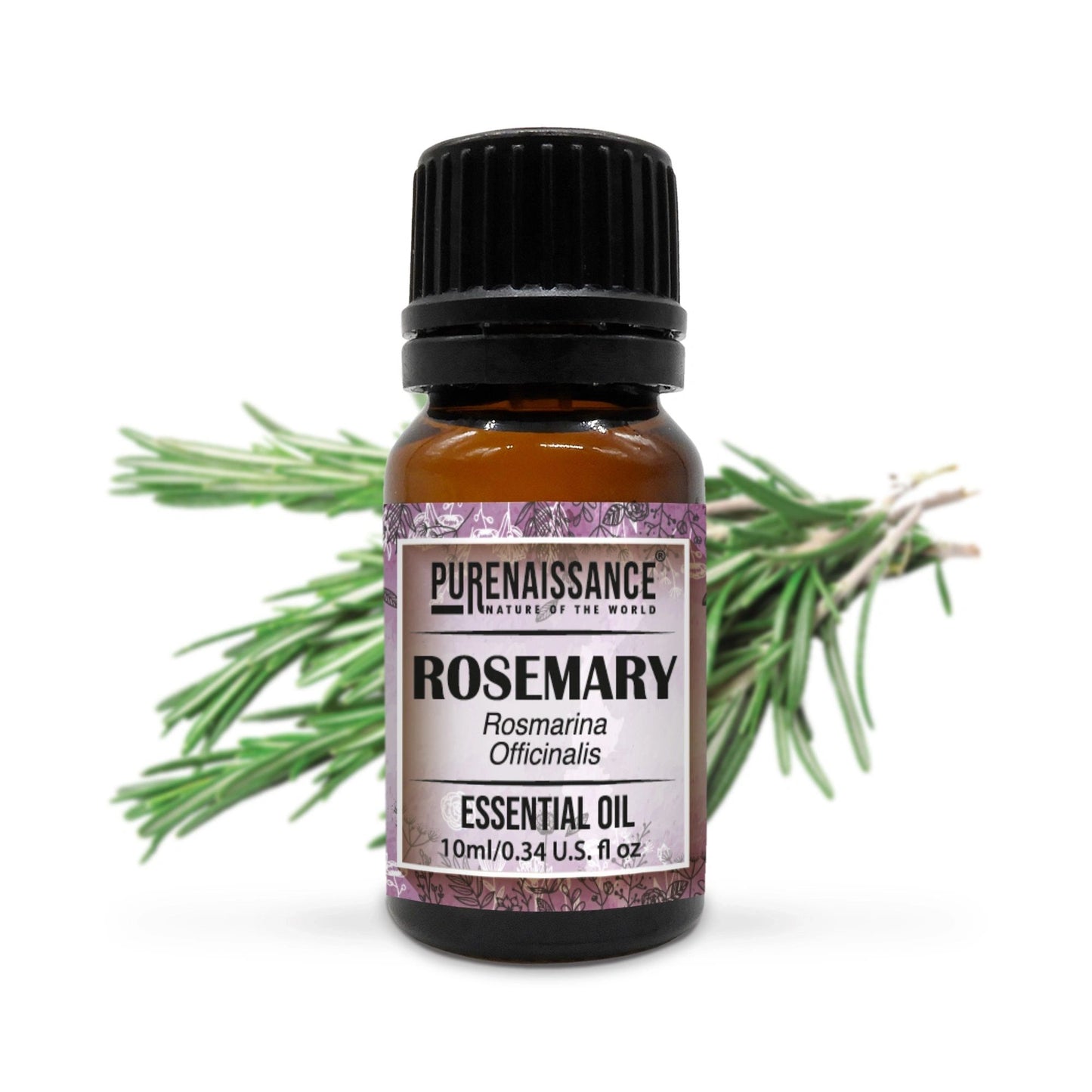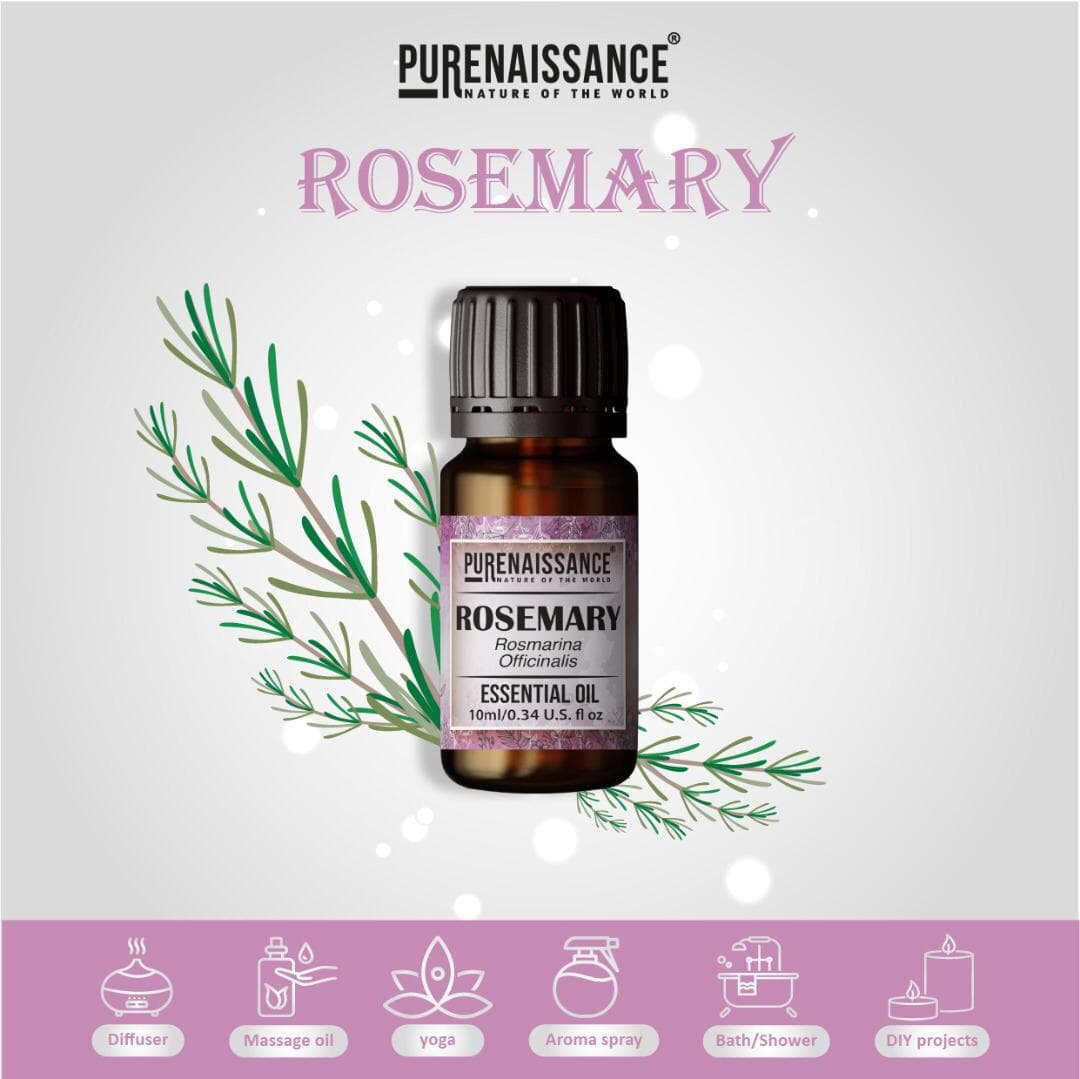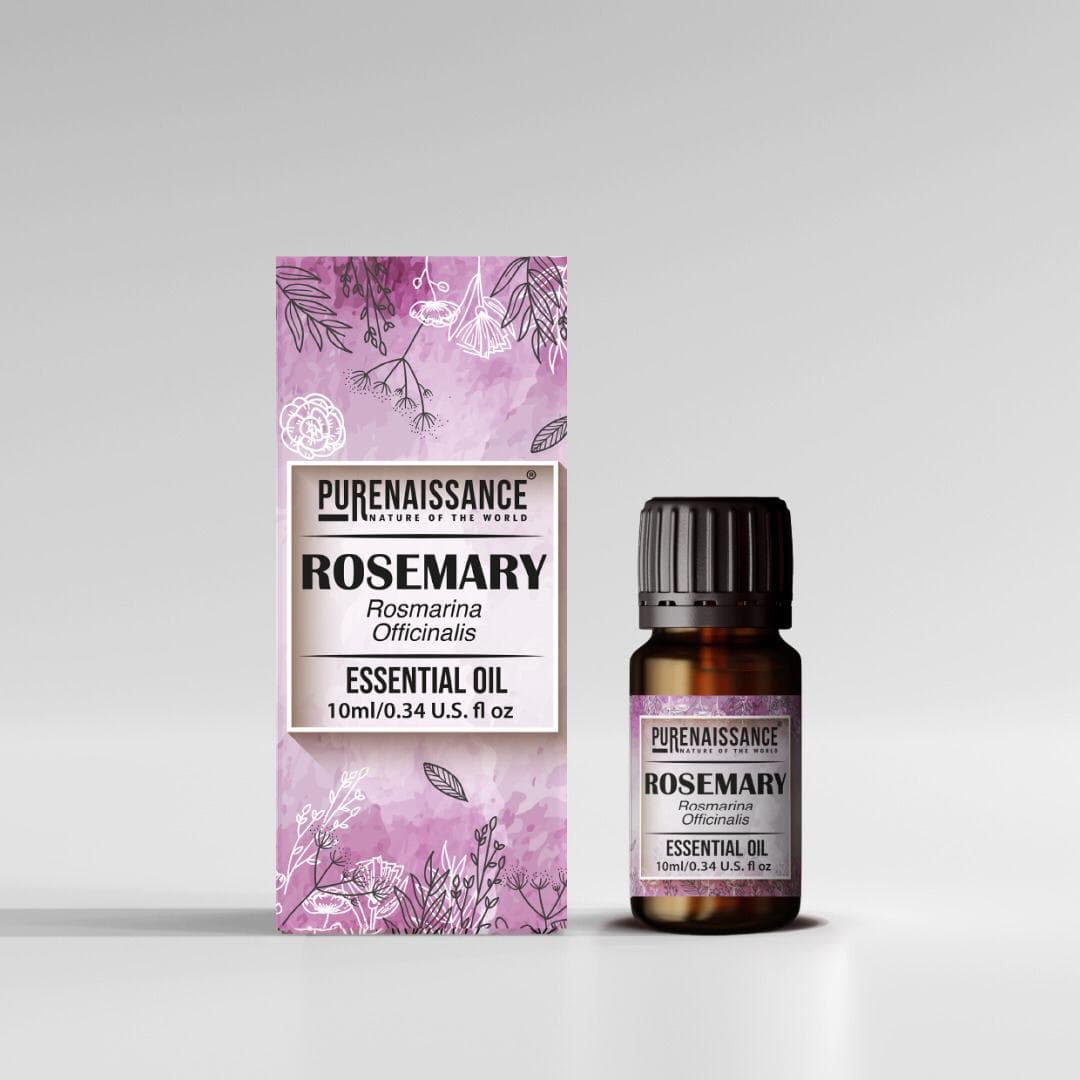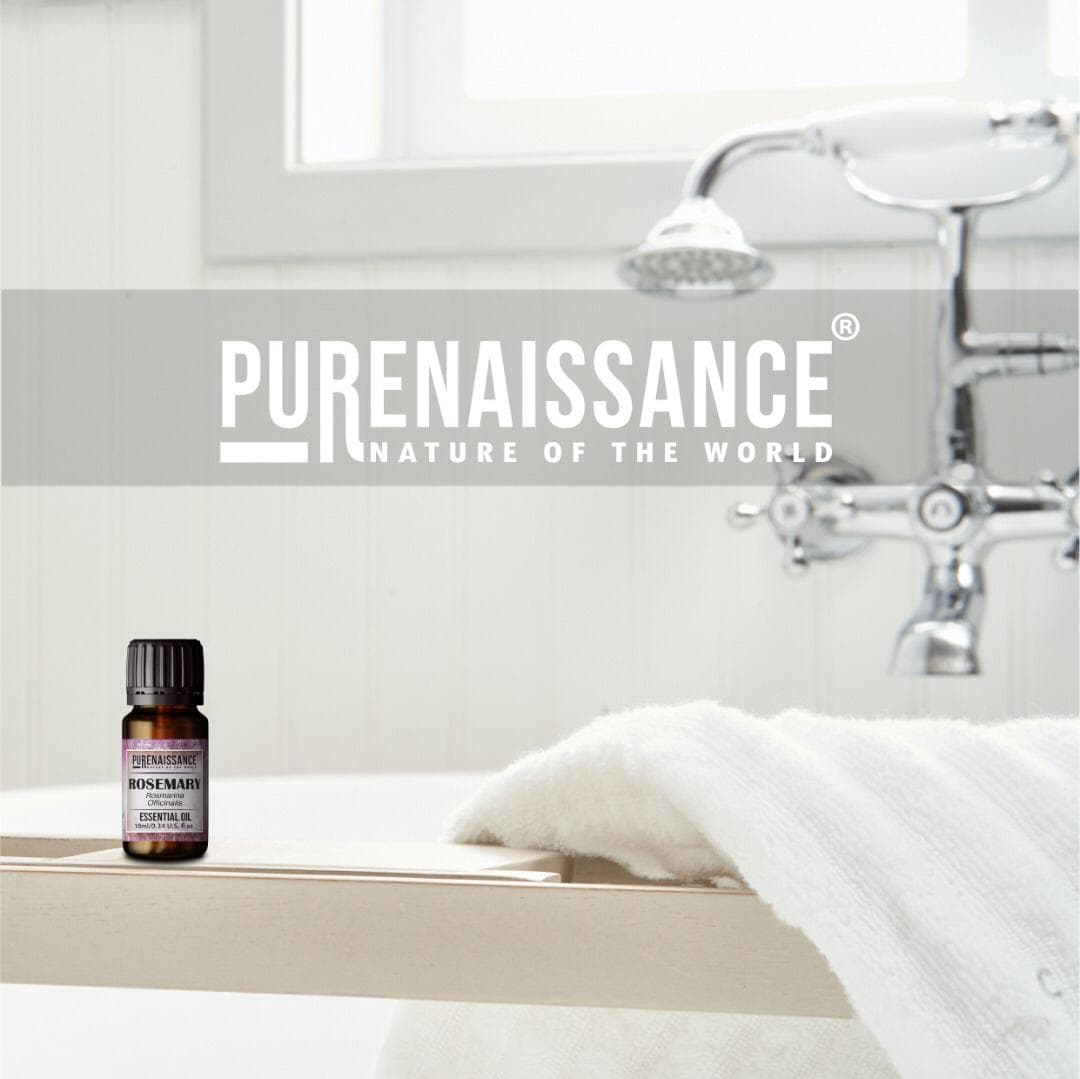NaN
/
of
-Infinity
Purenaissance
Pure Rosemary Essential Oil Purenaissance Therapeutic Grade for, Best for Aromatherapy and Diffuser /10 ml
Pure Rosemary Essential Oil Purenaissance Therapeutic Grade for, Best for Aromatherapy and Diffuser /10 ml
Regular price
$8.00 USD
Regular price
$8.50 USD
Sale price
$8.00 USD
Unit price
/
per
Couldn't load pickup availability
Rosemary Essential Oil, derived from the leaves and flowering tops of Rosmarinus officinalis, is a versatile and highly valued oil with a woody, invigorating scent. This oil has been celebrated for its benefits in health, beauty, and emotional well-being, making it a staple in both traditional and modern applications. Below is a concise breakdown of its properties and uses:
Key Facts:
- Common Name: Rosemary
- Botanical Name: Rosmarinus officinalis
- Botanical Family: Lamiaceae
- Appearance: Fluid liquid
- Color: Colorless to pale yellow
- Processing Method: Steam distillation
- Origin: Mediterranean Basin
Chemical Composition:
-
Primary Compounds:
- Cyclic Monoterpenes: Camphor, Cineol, Alpha-Pinene (15–30%)
- Monoterpenes: Borneol (15–20%)
Physical Properties:
- Relative Density: 0.895–0.905 @ 20⁰C
- Flash Point: 23°C to 55°C
- Refractive Index: 1.465–1.467 @ 20⁰C
Properties and Benefits:
Health:
- Properties: Antioxidant, anti-inflammatory, analgesic, mucolytic, expectorant, bactericidal, fungicidal.
-
Uses:
- Respiratory: Treats bronchitis, sinusitis, and pulmonary ailments through inhalation or diffusion.
- Muscular: Relieves arthritis, rheumatism, and muscle pain when massaged with diluted oil.
- Digestive: Aids digestion, alleviates bloating, and supports hepatic function.
- Circulatory: Improves blood circulation and relieves varicose veins and heavy legs.
Well-being:
- Properties: Revitalizing, stress-relieving, memory-enhancing.
-
Uses:
- Reduces fatigue and anxiety via aromatherapy or massages.
- Boosts memory and concentration.
Beauty:
- Properties: Skin regenerator, hair growth stimulator, anti-aging.
-
Uses:
- Hair Care: Combats dandruff, promotes growth, and detangles hair.
- Skin Care: Heals acne, reduces cellulite, and diminishes stretch marks.
Applications & Recipes:
For Hair:
- Hair Growth: Mix a few drops of rosemary oil with coconut oil, massage into the scalp, and leave overnight.
- Dandruff Treatment: Combine 5 drops each of rosemary and lavender oils with 3 tablespoons of jojoba oil; massage into scalp and rinse after 10 minutes.
For Skin:
- Anti-Aging: Add 1–2 drops of rosemary oil to night cream and apply daily.
- Acne Treatment: Blend 2–3 drops of rosemary oil with a carrier oil, massage into skin, and wipe off with a warm damp towel.
For Stress Relief:
- Diffuse 2 drops of rosemary oil with 3 drops of lavender oil to create a calming atmosphere.
For Circulation:
- Add 10 drops of rosemary oil to bathwater (diluted in liquid soap) to improve circulation and relieve fatigue.
For Respiratory Health:
- Inhale the steam from a bowl of hot water containing 2–3 drops of rosemary oil to relieve sinusitis or a cold.
Synergies:
- For Relaxation: Blend with lavender or sandalwood essential oil.
- For Circulation: Combine with grapefruit and black pepper essential oils.
- For Immunity: Pair with niaouli and ravintsara oils.
Precautions:
- Perform a patch test before use, as some may experience skin irritation.
- Not recommended for individuals with epilepsy, hypertension, pregnant or breastfeeding women, or children under 6 years of age.
- Avoid ingesting rosemary oil unless under medical supervision, as it may cause adverse effects.
Storage Instructions:
- Keep tightly closed in a cool, dry, and ventilated place away from direct sunlight and ignition sources.
Rosemary essential oil is a powerful, multipurpose oil that provides both therapeutic and cosmetic benefits, making it a valuable addition to any wellness routine














